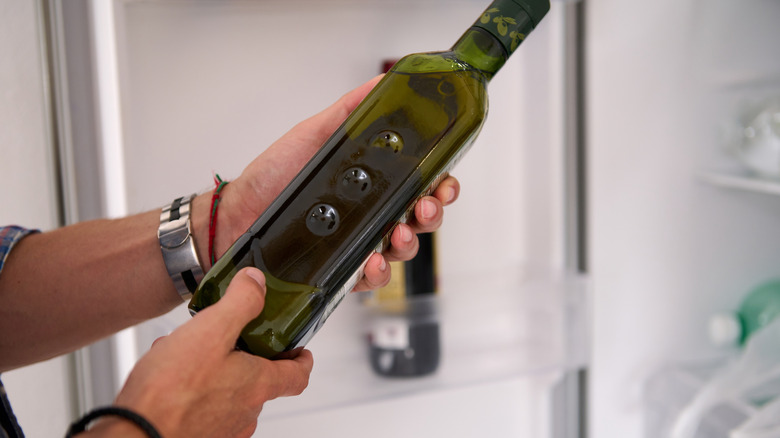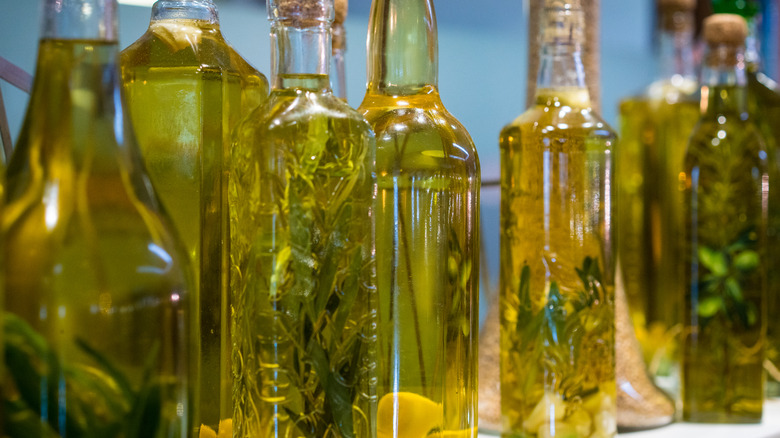Does Storing Your Olive Oil In The Fridge Keep It Fresher Longer?
Should you toss that prized bottle of extra-virgin olive oil in the fridge to make it last forever? Or does it belong on your kitchen counter? Some swear refrigeration extends olive oil's freshness, while others argue it's a big culinary faux pas. So, what's the truth?
Olive oil isn't one of those foods that absolutely needs to be refrigerated, but there are best practices for storing olive oil to make it last longer. Refrigerating olive oil can slow oxidation, keeping it fresh longer. This is particularly useful for expensive extra-virgin olive oils or for oils you don't use frequently. But — and it's a big "but" — the cold temperature can cause olive oil to solidify, forming unsightly clumps or a cloudy texture. While this doesn't harm its quality, it's not exactly convenient when you're trying to drizzle that liquid gold over your salad.
On the flip side, storing olive oil at room temperature, away from light and heat, is a safer bet for frequent cooks. Heat and UV rays degrade oil quickly, so keep it in a dark cabinet or an opaque bottle. If your kitchen gets warm (over 70 degrees Fahrenheit), the fridge might be a better option — just make sure you have your refrigerator set at the optimal temperature. You'll want to let the olive oil return to room temperature before use to avoid funky textures. In short, refrigeration isn't a hard "no," but it's situational.
Tips for peak olive oil longevity
Whether you're team fridge or pantry, proper storage is crucial for maintaining olive oil's flavor and nutritional value. Temperature is the trickiest factor. Olive oil can get cloudy at temperatures below 50 degrees Fahrenheit and usually solidifies anything less than 36 degrees Fahrenheit, but at around 68 degrees Fahrenheit, it thrives. So, it's ideal to store this liquid around room temp, but not if the room is particularly warm. Olive oil loves dark, cool places. Storing it in a tightly sealed, opaque container helps prevent oxidation, which turns oil rancid. If you're buying in bulk, consider decanting into smaller bottles to minimize air exposure.
For short-term storage, like bringing a jar of oil and vinegar to work for your salad, feel free to skip the fridge to avoid the solidifying. And, don't forget that the container you use for olive oil matters. A small, dark glass or stainless steel bottle, rather than clear glass, will prevent light exposure from degrading your oil's flavor. For that fancy bottle of EVOO your in-laws brought you back from Italy, we'd suggest popping it in the fridge to keep it fresh for special occasions. Refined olive oils, often used for high-heat cooking, are more stable and less fussy. They can safely live in a pantry.
The verdict? Use the fridge strategically: Only for long-term storage or when you rarely use the oil. For everyday chefs, a cool, dark pantry is your BFF. Your taste buds and your wallet will thank you.

